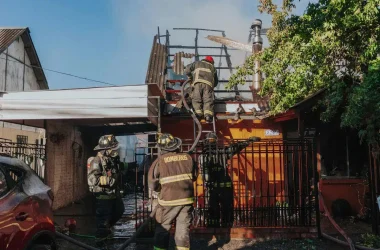Even a short-distance move can become stressful if you’re not organized. Preparation is the key to ensuring a smooth, efficient moving day. Whether you’re relocating across town or just a few blocks away, getting your home ready ahead of time saves time, reduces costs, and prevents last-minute chaos. Here’s a step-by-step guide based on the experience of Ottawa Pro local movers to help you prepare effectively before the moving truck pulls up.
1. Declutter and Downsize Early
Before packing, sort through your belongings and decide what’s worth keeping. Moving items you don’t need only adds unnecessary time and cost.
- Donate or sell items you no longer use.
- Recycle old paperwork, appliances, or broken furniture.
- Dispose of hazardous materials like paint, batteries, or cleaning chemicals properly (since movers can’t transport them).
A clutter-free home not only speeds up the packing process but also makes unpacking easier at your new place.
2. Organize Your Belongings by Room
Create a clear system for packing by grouping items by room and labeling boxes accordingly. Use color-coded stickers or bold markers for each area (e.g., blue for kitchen, green for bedroom).
Label boxes with both the contents and their destination room. This helps movers unload efficiently and ensures your items end up in the right place immediately upon arrival.
3. Pack Fragile and High-Value Items Separately
Take special care when packing fragile items like glassware, electronics, and artwork. Use bubble wrap, packing paper, or soft linens for extra protection.
Keep high-value items—such as jewelry, passports, and important documents—with you rather than loading them onto the truck. This ensures they stay secure and easily accessible throughout the move.
4. Disassemble Large Furniture in Advance
Save valuable time on moving day by disassembling bulky items like beds, dining tables, and shelving units beforehand. Keep all screws, bolts, and small parts in labeled bags taped to the furniture they belong to.
If certain pieces require professional handling (like pianos or large wardrobes), inform your movers ahead of time so they can bring the right tools and equipment.
5. Clear Pathways and Protect Your Floors
Ensure all hallways, doorways, and staircases are clear of clutter. This gives movers space to maneuver safely and efficiently.
Lay down protective coverings like old rugs, moving blankets, or cardboard sheets on high-traffic areas to prevent scratches, dirt, or scuffs. Movers appreciate a safe, obstacle-free workspace—it also protects your property.
6. Set Aside a “First Day Essentials” Box
Pack a small box or bag containing items you’ll need immediately after the move. This might include:
- Toiletries and medications
- Chargers and basic electronics
- Snacks and bottled water
- Cleaning supplies
- A change of clothes and basic kitchen items
Keep this box with you rather than loading it into the truck—it saves time and frustration when you arrive at your new home.
7. Secure Pets and Children on Moving Day
Moving day can be chaotic, especially with movers entering and exiting your home frequently. To ensure safety and prevent distractions:
- Keep pets in a closed room or with a friend.
- Arrange for children to stay with family or a sitter until the move is complete.
This allows movers to work efficiently and minimizes the risk of accidents.
8. Confirm Details with Your Movers
The day before the move, double-check the key details:
- Arrival time and contact number for the moving team.
- Parking arrangements for the moving truck.
- Any special handling instructions for fragile or oversized items.
Clear communication eliminates confusion and helps movers stay on schedule.
9. Prepare Appliances and Electronics
Unplug and clean all appliances, and allow them to dry completely to prevent mold or odors. Defrost refrigerators and freezers at least 24 hours before the move. Wrap cords and tape them securely to prevent tangling or damage.
Keep small electronics like laptops and gaming consoles in padded bags or their original boxes for added safety.
10. Do a Final Walkthrough
Before the movers leave, check every room, closet, and cabinet to ensure nothing is left behind. Verify that fragile boxes are correctly labeled and placed securely in the truck.
Lock all windows and doors once everything is loaded, and keep your keys, paperwork, and essentials with you.
Final Thoughts
Preparation determines whether your move is chaotic or calm. By decluttering, organizing, and safeguarding your belongings in advance, you can ensure an efficient and stress-free moving day.





